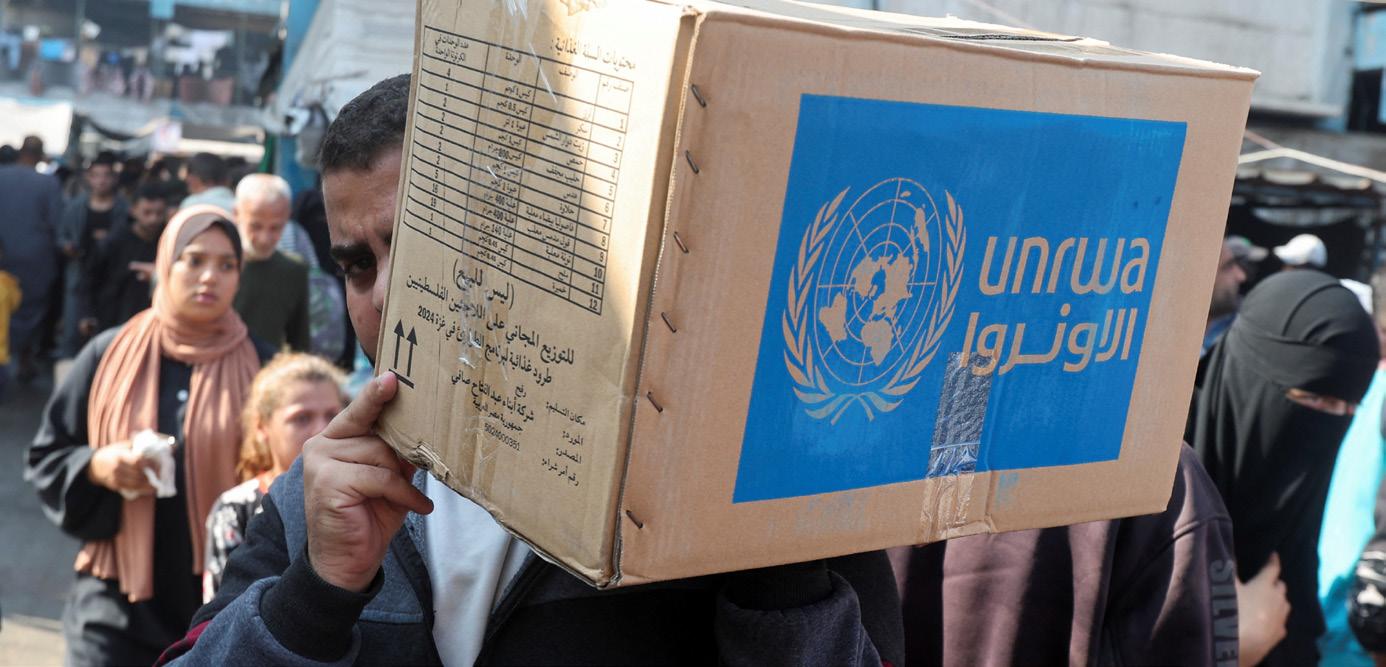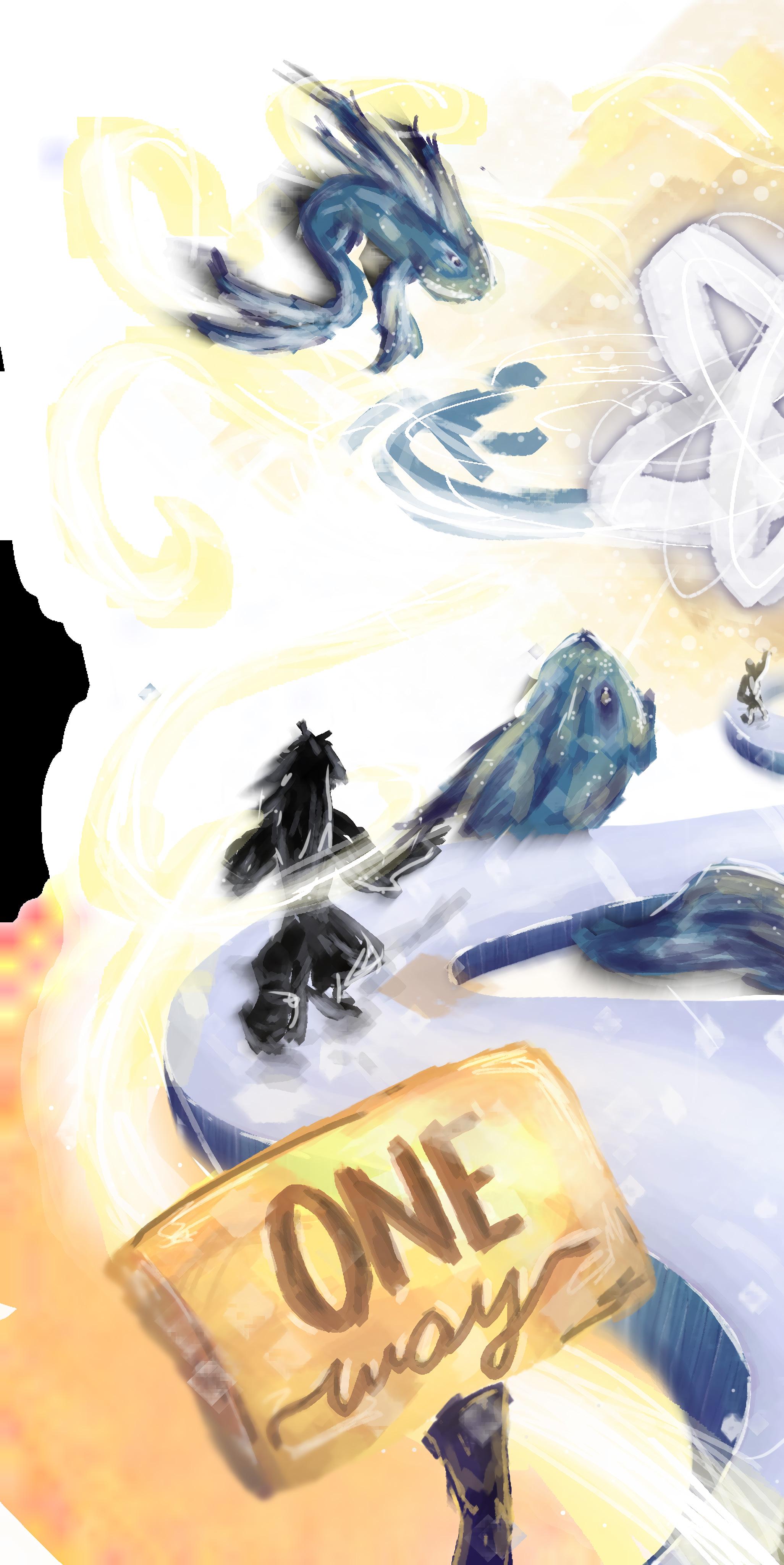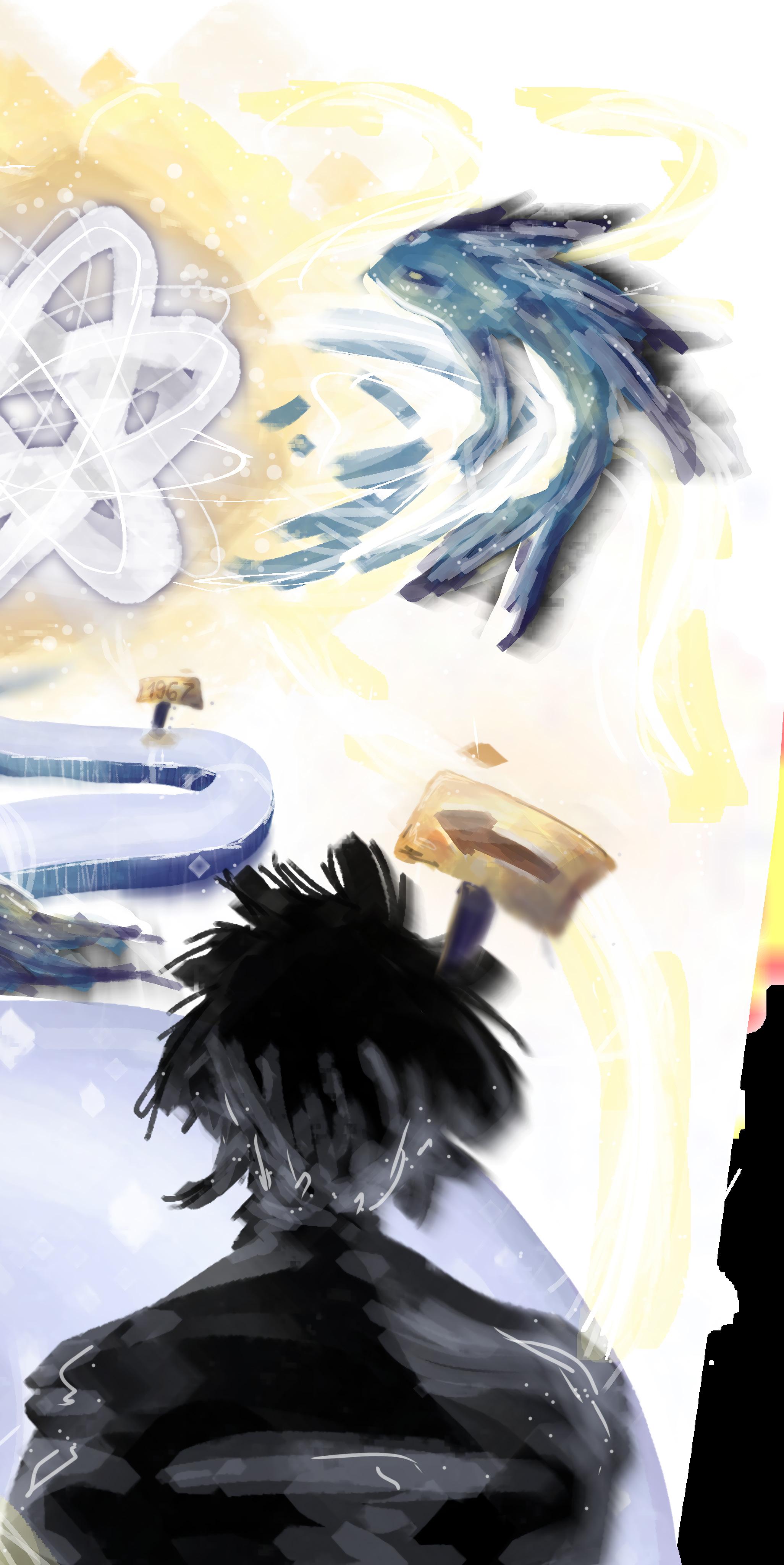




The Official English Publication of Quezon City Science High School Division of Quezon City | National Capital Region
TH LEGALIZES SAME-SEX MARRIAGE. Thailand makes history as the first Southeast Asian nation to legalize marriage equality.
City Science High School (QCSHS) Gender and Development (GAD) Club conducted three events to remark the 18-day campaign to end violence against women and children (VAWC) at the school dome and earth science laboratory last December 10.
A seminar titled “Maria, Makibaka!” consisting of two batches was done in collaboration with Samahan ng Progresibong Kabataan (SPARK) and General Assembly Binding Women for Reform, Integrity, Equality, Leadership, and Action (GABRIELA) Alliance of Filipino Women, as well as a self-defense and child protection workshop in collaboration with the Self Defense Ministry and Philippine Anti-Discrimination Alliance of Youth Leaders (PANTAY).
GABRIELA Chairperson Gert Ranjo-Libang and Campaign Coordinator Joan Bernadette “Dimples” Paz highlighted the importance of awareness regarding VAWC. SPARK Secretary General Patricia Racca also discussed the state of safe spaces in Philippine schools, while the Head of Propaganda Committee Yannah Guda talked about confronting systemic barriers of gender inequality in achieving a VAWC-free country.
The Self-Defense Ministry’s Self-Defense Training and Bystander Intervention Workshop in collaboration with Elite Taekwondo of Payatas taught the female-only attendees how to be able to defend themselves in situations of physical harassment through martial arts.
PANTAY’s Workshop spearheaded by the organization’s Project Officer for Communications and Creatives Anna Raphaela Cubacub educated the audience in the school earth science laboratory on how to protect and prevent children from experiencing exploitation, abuse, and harassment.
GAD Club President Chesca Jane Hernandez stated how meaningful the events were for the club to be able to spread information against VAWC.
“Children are very impressionable, they take a lot from their surroundings. As a gender and development club who has the resources, time, effort, and the drive to formulate a project such as ‘Maria, Makibaka!’, we wanted to take their ability to be so impressionable and give them a positive message to live by,” said Hernandez.
The seminars also included performances by Himig Scientia, 5STIG, and After Wednesday.




Drawing the curtains on the Supreme Secondary Learner Government’s (SSLG) run for this school year, its president, Kiara David, along with her coexecutive officers, presented their accomplishments during the State of Learner Government’s Address (SOLGA), last April 3. In the address, David recalled the resolutions and projects they had, from the appointment of the executive officers for Council of Volunteer Corps (CVC) and Coordinating Council of Campus Co-Curricular Organization (4Cs) and the early year activities such as Brigada Eskwela to the project series KiSERYE by the different CGLs. Apart from their accomplishments, they also cited some of their planned projects that were not implemented, such as Materials Recovery Facilities
(MRF) and outreach programs, due to conflicting projects with other administrations, insufficient time, and limited financial resources needed for materials and other expenses.
Another unimplemented project was the annual band night, also known as HARANA, which was cancelled due to the unsustainability of the project.
“Sa P500,000 na gagastusin for HARANA, how much the SSLG earns is just a fraction of that... Mahirap siya masustain kasi with that cost, we only get around P400,000 tapos the remaining P100,000 would be coming from the sales of Kisay Merch which in reality, hindi naman talaga dapat natin ginagalaw kasi that is our remaining funds and yung mapupunta sa next na administration,” explained David.
While the president said that they were able to plan the event in
a sustainable way, the funds of the organization still fell short, leading to the cancellation of the annual event.
Prior to David’s address, other SSLG officials also reported on the projects and programs that they have done during the school year.
Included in the reports were the financial statements provided not just by SSLG but also the different Curriculum Grade Levels (CGL).
Presented by the SSLG Treasurer Kyle Irish Mae Pleyto and Auditor Sydney Christine Avendaño, the organization cited a total inflow of P96,511 from CGLs 7-12.
Incoming SSLG President Carrie Gubalane also attended the address to answer some of the expectations of the students for her administration.
“This school year kasi, MAPEH Deparment yung nag lead. So most likely, ang mangyayari is
makikipag partner nalang tayo with them when they handle it next year,” said Gubalane regarding the reimplementation of Intramural Week for next school year.
Furthermore, SSLG Adviser Emerson Agra took this moment to acknowledge the legacy of the SSLG and how it is a challenge for the upcoming administration.
“This is a challenge to the incoming SSLG and CGL officers. This is a challenge to continue the legacy of SSLG and to uphold our motto of ‘In pursuit of Scientian Excellence.’ Always, we pursue Scientian excellence, within and outside the corners and bounds of our school,” said SSLG Adviser Emerson Agra. Present in the address were both incoming and outgoing SSLG and CGL officers and class representatives from all grade levels.
by Lara Morales



With the help of Royal Endorsement, Thailand became the first country in Southeast Asia (SEA) to sign the same-sex marriage bill into legislation on September 24.
King Maha Vajiralongkorn signed the law after it was cleared on the senate last June 18 with 130 senators for and four senators against it.
According to Thailand’s
official journal, The Royal Gazette, the family institution is a vital unit for social development, but the establishment of a family under the Civil and Commercial Code is limited to heterosexual relationships, which does not align with the current society where individuals of diverse genders can coexist as families.
“It is suitable to amend certain provisions in the Civil
Nearly seven decades erased
and Commercial Code to allow individuals of diverse genders to engage in engagement and marriage, which will grant them equal rights, duties, and family status as couples consisting of a man and a woman,” said The Gazette.
LGBTQ+ advocate Nada Chaiyajit said that it means a lot for Thailand to be the first country in SEA to legalize marriage equality.
by Jillian Sarmiento and Jarmela Bianca Simon
Developments in the State of Palestine have been set back by about 69 years from the year-long war in Gaza against Israel, as stated in the United Nations (UN) report published in October 2024.
Humanitarian crisis has escalated since Hamas’ attack on Israel last October 7, 2023, reaching an extreme level of
Our assessments serve to sound the alarm over the millions of lives that are being shattered...
ESCWA Executive Secretary Rola Dashti
casualties, mass destruction of homes and facilities, and severe decline of economic status.
“The State of Palestine is experiencing an unprecedented setback in development to the year 1955,” said United Nations Development Program (UNDP) Programme of Assistance to Palestinian People deputy special representative Chitose Noguchi.
According to Gaza’s Ministry of Health, at least 42,800 and 760 Palestinians were killed from Gaza and West Bank respectively, with about 100,000 wounded from Israel’s attacks.
Military operations across Palestine resulted in damage to at least 151,265 infrastructures, the highest levels of systematically recorded destruction by the United Nations since 2005.
UNDP and UN Economic and Social Commission
for Western Asia (ESCWA) concluded that the Palestinian economy may not be able to restore pre-war levels should they not lift economic restrictions and invest in developments that can enable their recovery.
UNDP also presented an analysis of possible recovery scenarios for Palestine, assessing their immediate impacts for 2025 and the longterm impacts anticipated by 2034.
“Our assessments serve to sound the alarm over the millions of lives that are being shattered and the decades of development efforts that are being wiped out,” said ESCWA Executive Secretary Rola Dashti.
As war rages between Palestine and Israel, UN continues to evaluate the impacts of the dispute and coordinate recovery efforts for the welfare of the victims.
Thailand is known for being one of the LGBTQ+ friendly countries in Asia, but activists have struggled for decades to pass this law due to conservative values of their society, and members of the community say that they still face discrimination everyday.
“Today we’re not only getting to write our names in marriage certificates, but we are also writing a page in
history that tells us that love never set a condition of who we were born to be,” said LGBTQ+ activist and Bangkok Pride Movement co-founder Ann Chumaporn.
The new law also revises Thailand’s Civil and Commercial Code to use gender-neutral words like “individual” rather than “husband/wife” and “man/ woman.”
Number of casualties from Gaza’s Ministry of Health





by Johann Clemente
Israel’s parliament approved two bills that stops the operation of the United Nations Relief and Works Agency (UNRWA) for Palestinian refugees on Israeli ground last October 28, with the first bill banning any activity from taking place and the other declaring them a terror group.
Commission on Elections
(Comelec) formally filed charges against dismissed Tarlac mayor Alice Guo last October 28 due to alleged misrepresentation material in her run during the 2022 elections.
Comelec Chairman George Garcia stated that they will file the information in the Regional Trial Court of Tarlac that will formally charge Guo of misrepresentation, which violates the Omnibus Election
Code. According to Garcia, they filed the resolution in violation of Section 74 in relation to Section 262 of the Omnibus Election Code which states that a candidate must use the baptismal name or name registered with the local civil registrar. “Pormal na po namin siyang kakasuhan ng misrepresentation, violation ng Omnibus Election Code sapagkat wala pong natanggap ang aming law department ng motion
by Denise Grabillo
for reconsideration sa naging unang resolusyon ng komisyon na siya ay kasuhan ng misrepresentation,” he said. In a previous investigation, the fingerprints of the ousted mayor in voting records matched the fingerprints of a Chinese citizen named Guo Hua Ping in the National Bureau of Investigation (NBI). This was after her supposed candidacy as Bamban, Tarlac mayor for the upcoming 2025 Elections last

October 8. Guo is still detained in the female dormitory of the Pasig City jail where she was transferred after her arrest in Indonesia last September. Guo is still facing charges of graft, human trafficking, money laundering, and tax evasion related to her claimed complicity with Philippine Offshore Gaming Operations (POGOs).


Israel’s parliament approved two bills that ban the operation of the United Nations Relief and Works Agency (UNRWA) for Palestinian refugees on Israeli ground last October 28, with the first bill banning any activity from taking place and the other declaring them a terror group.

by Alexa Bilo
Demonstrating the country’s sovereignty over the vital maritime region, the Armed Forces of the Philippines (AFP) intensified their security presence in the West Philippine Sea (WPS) for October according to a Navy official.
Philippine Navy Spokesperson for WPS
Rear Admiral Roy Vincent Trinidad disclosed that 64 successful patrols and other missions were conducted to reinforce security and sovereignty in the WPS from October 1 to October 18.
Missions included two sealift missions, 14 maritime patrols, one maritime surveillance patrol, one medical evacuation, two rotations and resupply missions, four maritime surveillance, surveillance, and reconnaissance operations along with 40 maritime patrols, highlighting the AFP’s broadened reach and
vigilance across the WPS.
AFP Spokesperson Colonel Francel
Margareth Padilla noted during a press briefing the patrols enhance activity monitoring in WPS while also supporting their other operations such as maritime domain awareness, medical evacuation, and resupply missions.
“These patrols strengthen our monitoring of activities in the West Philippine Sea while ensuring seamless support for operations like maritime domain awareness, medical evacuation, and resupply missions,” stated Col. Padilla.
Trinidad said that the military strengthened their efforts in WPS after Defense Secretary Gilberto Teodoro ordered the implementation of the Comprehensive Archipelagic Defense Concept (CADC).
He remarked that the shift to CADC has
allowed Philippines to increase its posture in the disputed waters and expressed the notable change in the Philippines’ presence in the WPS.
“I would say that the Philippine Navy, the Philippine Air Force, the Philippine Army, we have now increased our concentration, our focus, our emphasis on the external picture all the way up to the 200 nautical mile exclusive economic zone,” said Trinidad.
However, when questioned if this increase in presence in the WPS has impacted China’s aggression, he said that such changes in behavior need longer assessment.
According to the latest report as of October 15, 34 Chinese vessels logged in three locations within the WPS from October 7 to October 13.
Kingdom of Jesus Christ (KOJC)
Founder Apollo Quiboloy has filed a certificate of candidacy (COC) for the Philippine Senate in the 2025 Elections on October 8, 2024 despite facing serious criminal charges, as confirmed by Commission on Elections (Comelec) Chairman George Garcia.
Quiboloy is currently in prison after being indicted in the United States for sex trafficking, which includes charges of forcing female church members into sexual acts and compelling them to solicit donations under false pretenses.
Many legal experts, including Senator Risa Hontiveros, question how Quiboloy was able to run for office under current election laws.
The electoral process needs to be stricter in implementing more filters... so that those who are really qualified can serve the public rightfully.
Senator Risa Hontiveros
“I believe the electoral process needs to be stricter in implementing more filters to prevent individuals

like Quiboloy from running, so that those who are really qualified can serve the public rightfully,” remarked Hontiveros.
Xavier University Professor Tony La Vina also raised concerns about Quiboloy’s candidacy for office, stating that allowing someone facing serious charges like sex trafficking undermines the electoral process and the rule of law in the Philippines.
Quezon City Science High School (QCSHS) student Willzen Corpuz also stated that the situation is a mockery of the electoral process, especially considering why someone on the Federal Bureau of Investigation’s (FBI) wanted list is even permitted to run for public office.
“Is the country that desperate to
fill in a senate position that they will place the nation’s life at stake to give these criminals a chance to sit at the top? They are simply making the elections a joke,” said Corpuz.
This condition has led several politicians and advocacy groups to advocate for stricter regulations on candidates with criminal backgrounds, such as disqualifying individuals with pending charges.

nth Month Pay
Three Department of Education (DepEd) officials have admitted to receiving thousands worth of cash envelopes from Vice President Sara Duterte during her reign as DepEd secretary in 2023.
DepEd Chief Accountant Rhunna Catalan, former DepEd Assistant Secretary Sunshine Fajarda had given her cash envelopes of P25,000 nine times from February to December 2023 in a hearing on Duterte’s alleged misuse of public funds last November 5.
Former DepEd Undersecretary Gloria Mercado also admitted that she received nine envelopes from Fajarda, each containing P50,000, during the same time period, in the Office of the Vice President (OVP)
budget hearing last September 25.
In a statement, Mercado said that Fajardaalways claimed that they came directly from the office of Duterte.
Mercado also agreed that the envelopes might have been used as a means to influence her decisions while being the Head of Procuring Entity (HOPE).
Duterte denied the claim prior to the hearing which led to Mercado turning over an envelope that she allegedly received.
DepEd Director IV Resty Osias verified Mercado’s claim during the hearing of the House of Representatives last October 17 saying that he also received cash envelopes from Fajarda and Duterte herself.
“I thought it was a practice of the department. The very first time I encountered that matter was sometime in April of 2023,” Osias said.
Osias claims that from April to September 2023, he received four envelopes, each containing P12,000 to P15,000. An official pointed out that both Mercado and Osias stopped receiving cash envelopes in September 2023, aligning with the emergence of public scrutiny regarding the Vice President’s confidential funds.
The OVP remains silent, issuing no official statement about the alleged cash distributions.


by Aerol Meriales
We have gone ballistic, in every aspect of the word — so eager to jump the gun with little care for the collateral damage.
As the Israel-Hamas war continues to escalate following the recent involvement of Iran in its October 1, 2024 attack, shockwaves were sent through social media to fuel the boycott movement against companies who allegedly have ties with supporting Israel. However, the boycott movement has gotten too misaligned to its original purpose. The relentless barrage of shaming and labeling of individuals who, for their own reasons, are not able to participate in the Boycott, Divestment and Sanctions (BDS) movement has to be put on ceasefire as this aggressive culture only backfires.
Personally, I never really liked McDonald’s to begin with, nor did I ever need to interact with companies like BDO and Starbucks. However, if I had to count the amount of people I have seen being socially executed for indulging in McDonald’s fries or Starbucks’ coffees, I would need to be an eldritch horror.
The purpose of boycotts is to serve as a weapon of peaceful protests against abusive companies. While boycotts are primarily seen as a direct attempt to exert economic pressure on companies, their actual purpose is to raise awareness and start a collective action. This is especially important as a majority of Filipinos lack awareness of the ongoing crisis in Gaza, let alone the ties of certain companies in this genocide. Villainizing these individuals for ignorantly purchasing convenient and affordable products, shaming them as advocates for genocide, or simply labelling them as idiots is a grave misfire of energy that should be directed to the true enemy. This aggression misaligns with the purpose and target of boycotts — camaraderie against companies.
McDonald’s repurchased all its 225 Israeli franchise restaurants from Alonyal, the McDonald’s franchise directly supporting the Israel Defense Forces (IDF) on April 5, 2024. This means that the worldwide boycott against McDonald’s worked. Along with the acknowledgment that McDonald’s Philippines, owned by Golden Arches Development Corporations, is independent of McDonald’s Israel, this development should answer the question of whether or not the aggressive and ballistic approach of boycotting should further be insisted.
While we have the right to say what we want, this right ends when it crosses another’s. Supporting the BDS movement does not give anyone the authority to belittle, to label, and to shame their peers. Let this be a call for us to redirect our attention toward the actual crisis and purpose of the boycott movement, and not toward each other.
While hateful words from an individual can feel like a sharp blade piercing you, a bombardment of such from a group of people would be devastating. Is it such a sin to be ignorant of another country’s suffering while our nation itself faces its own crises?
In times of war, we must be careful not to aim our arsenal so carelessly, even against the worst of our enemies, lest we too become no different. In this bitter battle towards peace, kindness shines brighter in the hearts and minds of people than the darkness of senseless hostilities.

OTHE RIZZLER
by Yuri Jimenez
ur very first line of defense has always been our words and if all else fails, the last remnants of our identity are preserved by the mother tongue. We could die, but the marks left by our tongues and fingers leave echoes in eternity.
History has proven time and time again just how important languages are for maintaining a civilization and the preservation of its individuality. Our heroes bled for this birthright, and many more of our heroes will continue to do so. It remains an undeniable fact that our shared cultural identity as Filipinos has established itself to be so strong, even its very essence is memed. Inspiring phrases like, “Uy! Philippines!” due to our rather peculiar zeal with mere mentions of Filipino related activities. Pinoy pride may carry lighthearted humor in our immediate pop culture, but nationalistic pride is what preserved our identity in spite of the centuries under colonial regime.

The push of the Department of Education (DepEd) to reduce the Filipino subjects — with some advocating for its removal entirely — within the Senior High School (SHS) curriculum is an utterly degenerate movement.
First and foremost, the reduction of Filipino subjects misaligns with national interest. It contradicts the very essence of which Deped was built upon — to educate the people with their own language. We cannot develop a rigid, intellectualized language if it is neglected at the most basic level. Moreover, such a spontaneous reformation — especially given Deped’s current track record —
by Kayne Bandal
life gives you typhoons, Filipinos know how to lend a hand. Yet as if mocking faith, those in office often forget to roll up their sleeves and go knee-deep into annual over-the-head national crises.
Following the devastation caused by Typhoon Kristine, which forced thousands from their homes and left entire communities submerged, Filipinos are once again grappling with the familiar disappointment of leaders who prioritize photo ops over real solutions. As the floodwaters recede, so too does the urgency for change, swallowed whole by a wave of political posturing and hollow promises that drown out the cries of accountability. This relentless cycle of neglect shows that while we prepare for the onslaught of storms, we remain unprepared for the flood of excuses that inevitably follow. With countless lives lost and communities shattered, it’s worth asking whether resilience alone is enough or if it’s time to demand a real shift in how we prepare for and respond to disasters.
The Philippines faces around 20 tropical cyclones each year, with increasingly severe impacts. According to the Philippine Atmospheric, Geophysical and Astronomical Services Administration (PAGASA), typhoons often peak during July and October, affecting millions of Filipinos annually.
Nationalistic pride is what preserved our identity in spite of the centuries under colonial regime.
could result in poor execution and unreliable planning much like the 2013 CHED Memorandum Orders. The abolishment of all Filipino subjects in the tertiary level left thousands of teachers in instability, doing the same to the secondary would result in much the same or likely worse. DepEd could argue the necessity of the language’s abolishment in SHS by masking it under the pretense of a stronger, better curriculum but no angle of which you view this reform would save it from its own retrograde nature.
I mean, is this seriously a true occurrence and not just another article of fake news? How absurd it is that most countries would
issue national scale movements to propagate and retain their culture while DepEd moves to extinguish it to “fit” international standards. I have seen and read countless articles detailing why Filipino subjects are integral to our education, yet I have not seen anything showing why it is not. Unless there is a proper manuscript to explain to me step by step as to why this is a good thing, I view it as nothing less than a cultural genocide. This is a robbery to many of our incoming SHS students to never fully experience what Filipino is at the pinnacle of the secondary level.
It is one thing to place importance in adapting to a rapidly globalizing world, but senselessly plucking your roots is just outright cruelty. It is a shame that we disarm our people of the very weapon that freed them from foreign rule to accommodate and appease their liking.
Regions like Eastern Visayas and Bicol are particularly vulnerable, with many communities experiencing flooding and landslides that leave towns isolated for days. Typhoons not only disrupt daily life but also hinder crucial public services. These include power outages, blocked roads, and overwhelmed healthcare facilities are common issues that delay recovery and heighten risk for affected populations. The impact on agriculture is also undeniable, with far-reaching consequences for food security as rice paddies, plantations, and fishing areas are frequently devastated by high winds and floodwaters.
The Filipinos’ usual call during typhoons is “bayanihan”. It is often celebrated as the embodiment of Filipino resilience, but it actually serves as a convenient excuse for a government that dodges its real responsibilities. Though it may create a facade of Filipino solidarity in times of crisis, donation drives and relief operations become mere band-aids that enable our leaders to evade accountability. Relief efforts, as noble as they are, do nothing to solve the underlying issue of why our communities remain so vulnerable. This reactive mindset enables the government to offload the burden of recovery onto the very people they should protect, reinforcing the idea that as long as Filipinos help one another,
there is no need for long-term solutions. For a country that knows all too well the price of being unprepared, why do we cling so hard to stopgap solutions? The cycle of short-term responses is further worsened by the shortlived attention span of Filipinos in the aftermath of disasters. This not only hampers progress but also plays into the hands of our neglectful leaders. Take Typhoon Ulysses, for example. The initial outrage was palpable as images of submerged homes and desperate families flooded social media. Yet, just weeks later, the fervor was replaced by mindless scrolling and trending challenges, allowing our leaders to slip back into their comfortable silence. While communities continue to suffer, public focus shifts to the next viral moment, enabling a government that thrives on distraction. As long as our outrage fades, our leaders will prioritize their comfort while we drown — not just in floodwaters, but in a sea of broken promises. When disaster strikes, many politicians’ ability to talk far outpaces their ability to act, leaving a trail of empty promises in their wake. Their slow responses become painfully evident as communities grapple with the destruction, often waiting days for assistance that should have been mobilized immediately. While bayanihan showcases community
You may cover a wall’s cracks with how many layers of paint, but it will serve no support to prevent an inevitable collapse.
The answer to the fumbling aspects of education — this is how the MATATAG curriculum has been dubbed by its hopeful proponents. However, the project has shown everything but a solution. Since its launch for the School Year 2024-2025, the curriculum has shown a lack of promise, with its earliest fumble being its guidelines released only a month before schools opened their doors once more.
Teachers are a critical component in the success of a curriculum. As MATATAG’s implementers, they must be equipped with substantial knowledge and know-how of this new curriculum. The Department of Education (DepEd) was not able to provide said implementers with this luxury as the agency struggled to keep up with the ambitions of a nationwide project that lacked strategic implementation or timely approaches. Sure, there was training, but a week-long training session is not nearly enough for teachers to familiarize themselves with the changes to carry out. This resulted in teachers being burdened with relentless reforms and demands for adaptation.
One of these changes is the shorter
time allotted for each subject. Teachers were left on their own to strategize how to carry out lessons for 45 minutes per class rather than the previously allotted one hour.
Adding insult to injury is the lack of teaching resources and learning materials. The MATATAG curriculum revised the foundational skills for kindergarten to grade 10, reducing the skills from seven to five. These are Language, Reading and Literacy, Mathematics, Makabansa, and Good Manners and Right Conduct. The integration of some subjects forced teachers to teach subjects they had never taught or have adequate knowledge to be teaching altogether. The curriculum shift has rendered past textbooks obsolete, as they now lack the newly added lessons and necessary updates to support the implemented syllabus. This gap in educational resources leaves teachers to handle the problem on their own yet again, burdening them and leaving another possible scar on the education of students. This is also a problem for teachers in grade levels whose curriculum guides are not yet finalized.
Overburdened teachers, undertrained mentors, more rigid schedules and lack or absence of MATATAG-compliant learning materials
solidarity, it cannot replace systematic, government-led disaster preparedness. This overreliance to community collaboration allows its leaders to evade accountability for comprehensive disaster management. Countries like Japan and New Zealand invest heavily in infrastructure and proactive planning, proving that true resilience requires more than goodwill. When bayanihan is wrongly viewed as enough, it becomes an excuse for systemic failure, leaving citizens vulnerable and defenseless against the relentless onslaught of disasters.
It is urgent that we shatter the cycle of complacency and demand leaders who prioritize genuine action over empty promises. Filipinos must rise and reject the status quo, holding those in power accountable for their failures. We demand voices for true change, not photo-op politicians who use our suffering as their stage. As we brace for the next storm, let’s remember that the greatest threat isn’t the floodwaters, but our own willingness to forgive leaders who drown us in excuses. So as we brace ourselves for the next storm, let’s remind our leaders that it’s not enough to watch us help each other; they might want to consider rolling up their sleeves too—because watching them dodge the rain while we bail water is getting old.
by Jela Flores and Thien Mangubat
are what the MATATAG curriculum brought to the table. All those hit no other than the students themselves. Students will not thrive if their teachers are overwhelmed and exhausted. Learning will, of course, be negatively affected if their teachers are still studying the topics unfamiliar to them. In fact, students are also forced to adjust to the new schedule – going from one subject to another and leaving almost no time to absorb the key ideas from the previous subject before they welcome the next subject. It is very ironic that one of the curriculum’s goals is to take care of learners by promoting their well-being, yet it is ultimately the students and teachers who suffer the most in the end.
The MATATAG curriculum, intended to be the backbone of a resilient education system, is slowly bending under the weight of unaddressed issues on teachers, resources and learners. If MATATAG is expected to succeed, these cracks must be repaired.
If not, the future of the country’s


by Briana Bandojo
As the year draws to a close, I find myself in a reflective space, painted with gratitude for the moments, lessons, and connections that have graced me these past 12 months. This year, gratitude did not arrive in grand bursts but in quiet symphonies — a series of soft notes that have composed a year worth surviving. It was a year of finding meaning in the subtle and overlooked.
I am grateful for the mornings. Not the dramatic, sunrise-over-the-mountain kind, but the small miracle of the warmth of the sunlight streaming through the window, constantly
Gratitude, I have found, does not always need to be loud and proud. ” ”
reminding me to pause and cherish the gift of a fresh start — a chance to realign and renew. I used to sleep through this beauty but this year, mornings taught me patience. They gave me the space to breathe and observe the world waking up alongside me.
I am grateful for the people beside me. Not for their roles but their essence. For the way my closest friends seem to know when I need a long and warm embrace more than repetitive and empty words of encouragement. For the special person I have let go of, leaving me with lessons and memories I will hold onto tightly forever. For my family that anchored me to the ground during times I attempted to drift away along the stormiest days. I learned to be grateful for the struggle. It is an odd thing to say because I have often cursed challenges. But the tough days, the ones where uncertainty and fear threatened to overwhelm me, forced me to grow. Everything I did, I did with fear. I found the strength I did not know I possessed. I learned to embrace the messiness of being human, to stumble and rise without shame.
Perhaps most of all, I am grateful for the ongoing process of becoming not who I think I should be, but who I truly am. This year has been a long cycle of shedding of layers that no longer serve, exposing the genuineness deep within, and a celebration of growth. For every step forward, every stumble, and every moment of grace along the way, I am deeply and endlessly thankful.
Gratitude, I have found, does not always need to be loud and proud. It thrives in the simplicity of recognizing how much we already have. It is about appreciating the in-between moments and realizing that the ordinary is often extraordinary when seen through a different lens. Ironically, these quiet symphonies were the best remedy to the loudest of days.
So as this year winds down, I carry this symphony with me — a chorus of gratitude for the often overlooked things in life. And though the melody is quiet, it is powerful enough to carry me into the next year with a heart full of gratitude.
by Aljane Venice Dalin
Who would have thought this month known for its cheesy rom-coms would highlight something from the horror genre?
February 25,1986 significantly marked the Philippines’ history as this day showcased an immense amount of nationalism and unity which made it earn its title as ‘The People Power EDSA Revolution’. Perhaps the horror lies in the ugly truths that transpired on this day. Filipinos once lived a life where dead bodies painted the streets red and martyrdom was not a grand act anymore. People were starved of their freedom creating the impression that they were not human. Or perhaps the horror lies somewhere more recent.
This date also boasted a special place in our calendars. That is until Philippine President Ferdinand ‘Bongbong’ Marcos Jr. announced it as a working holiday. This day was supposed to be used to honor our local heroes, to celebrate a national
victory, but instead, it is spent like an afterthought as we continue on with our busy lives. What may have led to this concluding decision was the President’s awkward juxtaposition between his current regime and the main point of the revolution — putting a stop to his father’s tyrant rampage.
The EDSA People Power Revolution is many things at once.
A TEACHER. This might as well be a trip down a history lesson, but the most important lesson is what this day taught us. We learned that something as trivial as unity is our key to success, especially in the face of a national problem.
A MOTIVATOR. We are more inclined to advocate for the truth. Many modern martyrs are resurfacing the depths of the internet with mentions of their noble sacrifices for their country.
A REMINDER. History is inerasable. It is absolute and
Even the smallest drop of gold is a reward for those who thirst for greatness.
As my years with Quezon City Science High School (QCSHS) become fewer, I find myself challenging my greatest limits, wandering the path my seniors once took.
I basked in the trophies, medals, glitz, and glamor. Allowing my eyes to wander and gaze upon the golden medallions secured by cases of glass, I stood deep in thought. I was raveling upon their momentous feats. Then I wondered if I too, would bask in the glory of fighting for the pride of our beloved alma mater.
My first two years were molded by my teachers and peers. The pandemic
cannot be undone. We witnessed records of people who shed blood, sweat, and tears for a singular purpose that encompasses something common in humanity. Our raw need for freedom. We are reminded we are human.
The supposed limelight we yearn to shine at this piece of history was hindered by a figure standing in front of it. Truth prevails however, we can always point the light toward another direction. As unappeasing the horror may be to highlight, it’s still a vital part of the inescapable truth. It is still a vital part of the one beautiful thing that happened on this day. When the month of love was outshined by one certain love — love for the country.
by Sophia Braganza |
and memorable friendships as I clung to the feeling of joy through glitching screens. I speak to these people far less often, but the pride runs deep as I glance at every individual with a silent smile. I have not forgotten them. In the following years, I felt lost. There I was, left to navigate an ocean of people who were just as confused as I was. There was a silent, unspoken pressure of having to be just as great as I had been before the pandemic, as if nothing had ever happened, and no battles had ever been lost. It was the age of not knowing
preserved our identity of the centuries regime.


people who shared the same sentiments.
This time around, I have learned to choose my battles.
My seniors taught me to dip my wings in every endeavor to find what was meant for me.
”
pride is what identity in spite centuries under colonial regime.
It all went by in a flash, almost too fast to blink.
Some have grown into the shoes of the adult world, and others await their chance to stand on the graduation podium. Each of them has left a star of greatness in my heart. As I look back at the achievements I made along the way, I am certainly built upon the excellence of my mentors,
and refined by their patience and teachings.
Now, I count the days I have left in QCSHS. What was once a golden dream is now tangibly in my hands in the form of competition trophies, club excuse letters, and classroom notes. A little over two years, and it will be time for the home run. Who would have thought that I would make it this far?
I am left with the virtues of vigor and grit— soaring through the great golden skies of determination. One thing remains tried and true: you will leave this institution having found the strength you looked for in the depths of yourself. You will pursue your path but still find yourself gazing upon the path paved by many.
Madame MerriamWebster’s dictionary defines love as a strong affection for someone or an act of cherishing someone. It is an inevitable subject of contemplation, emanating from the mist in our minds and yearning to find its own definition.
Love — as encountered so much in monotonous repetition — had always been a sputter of noise heard across the walls of my home. Though my tongue still could not translate the in-depth feeling of love, I associated every feeling with the actions of my family. Love was the burden my father had to lightheartedly and willingly carry when my sister and I asked for a Barbie set taller than we would ever be. It was the books my mother had to study — as if her college self had inhabited her body — so she could test my knowledge.

by Jazmin Clauwy Santos
until my mind barely made space for the mockery within. I found love in between the fictitious pages of books I’d read, in the unprecedented dialogues of forbidden lovers in films, and in the words of friends and family laden with fragility yet tenderness. I started to believe that love was really a choice.
Love is handing your heart to someone. It is like unlocking every unopened door anew, palms as cold as the autumn breeze that would never come. You embrace the uncertainty of fate and learn to open your heart, hopeful that the solicitude you find in the eyes of those you love remains true. The semblance of unwrinkled smiles hides the labored breaths and the erratic thrusting in your chest. Love requires trust deeper than the cavernous trenches.
Amidst the acquainted clacking of actions and words itching past from my friends and family, I would still try to dawdle through every fissure, figuring out what love really is.
On the day I jolted from the colossal and rugged rooms of childhood, the thought of love began to suffuse
Love wears the scent of familiarity, like the pages of an old book that has weathered years in the hands of those who cherish it. Love listens, not just to words but to the silence between them. They linger in the way fingers brush against yours in passing, in the way their piercing laughter wraps around you like a wellworn sweater. Love is the way you inconspicuously whisper their name, hoping the wind carries it to them. It is their name found between fading ink, etched into the fabric of who you are.
Love is the grief that lingers in your chest when
The world fractured on the asphalt that day, the day my very soul departed from life — or so I thought. It was her birthday, a day meant for celebration, for joy, for life. Instead, it nearly became my last. I remember stepping off the curb, the mundane act of crossing the street, when a blur of metal and a roar of an engine — so silent yet so loud, erupted into my reality. It was moving too fast, and I was frozen. A deer caught in headlights. A predator hurtling towards its unsuspecting prey. Inches. That was all that separated me from oblivion. I felt the wind of the vehicle as it screamed past, a tangible brush with death that stole the air from my lungs. The world swam back into focus, the rasp of the city returning to
Love does not always make sense, does not always arrive when or how you expect it to — but when it does, you will know. You will find it in the hidden.
a name crosses your mind but never your lips. It is the ache of all the words left unsaid, the tenderness trapped in your throat yet unheeding.
Love does not end — it only transforms, curling itself into the spaces someone once filled, waiting for a place to belong again. Grief is merely love with no destination, a relentless tide that crashes against the walls of your ribcage, desperate to be felt — to be known. It is proof that love was once there, that it existed in its fullness, refusing to disappear.
Love does not always make sense, does not always arrive when or how you expect it to — but when it does, you will know. You will find it in the hidden crevices of every familiar face. But when, at every juncture, love refuses to reveal its greatest mysteries, I would love to figure it all out with you.
by Isabelle Corpuz
my ears, but I was different. Shattered. I should have been gone, a smear on the road, but I was here. Alive. Living the life that God has given me. It was impossible, statistically improbable, a twist of fate that defied logic. In the days that followed, I could not shake the feeling that something, someone, had intervened. An angel, a divine being, perhaps, watching over me in that very moment of sheer terror. Sleep became a ground of replays, the screech of tires and the flash of headlights forever etched behind my eyelids. Days bled into weeks, and the tears would come unbidden, a sudden downpour of grief and disbelief. It was not just my body that had almost been broken that day; it was my soul — or so I thought. I thought it had broken me, that the trauma had irrevocably damaged everything from within.
But I was wrong. Slowly, painstakingly, I began to piece myself back together. The cracks remained, visible reminders of the near miss, but they were filled with something new: a profound, unwavering appreciation for the simple gift of existence. The sun on my skin, the laughter of loved ones, the taste of morning coffee. These were no longer taken for granted, but savored and cherished. I had stared into the abyss, and the abyss had blinked. And in that blink, I discovered a resilience I never knew I possessed. I learned that life is fragile, precious, and not to be wasted. The near-death experience didn’t break my soul; it forged it anew. I now live with gratitude, a quiet determination to make every moment count, and an understanding that every breath is a fortune.